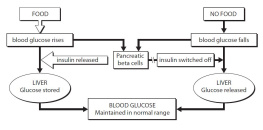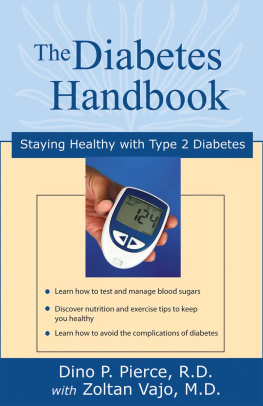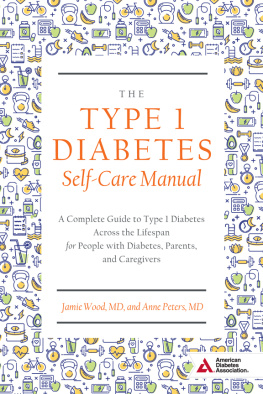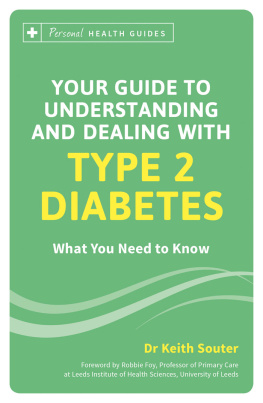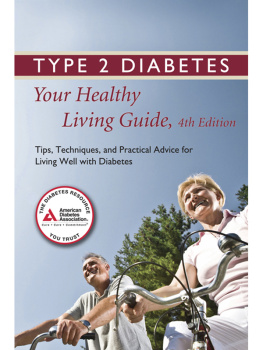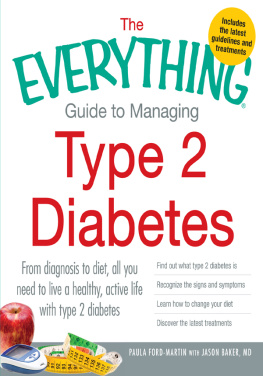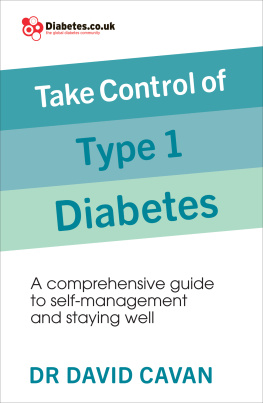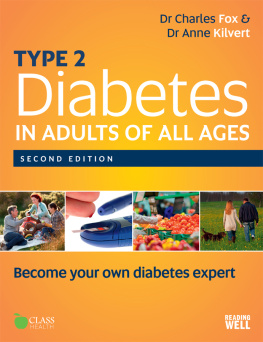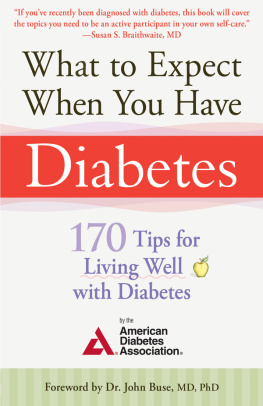Type 1 Diabetes: Essentials
Your Fifty Key Questions Answered
Dr Charles Fox and Dr Anne Kilvert
Contents
A note for the reader
1 What is diabetes?
2 Coming to terms with diabetes
3 Treatment with insulin
4 High and Low blood glucose levels
5 Monitoring and control
6 Living with diabetes
7 Long-term complications
8 Glossary
A note for the reader
This Essentials book answers all the key questions asked about Type 1 diabetes in succinct, accessible and up-to-date form. lf you want more information than we can give you in this book, you might be interested in Type 1 Diabetes: Answers at your Fingertips , by Dr Charles Fox and Dr Anne Kilvert, published by Class Health (www.class.co.uk).
A diagnosis of Type 1 diabetes can be extremely distressing for any young person and his or her family. People with Type 1 diabetes usually develop symptoms quite rapidly and require regular treatment with insulin. The positive news is that with good control the long-term risks can be avoided. Medication, exercise and diet are all important in maintaining good glucose control and a healthy lifestyle.
More about all the organisations listed, including contact details, can be found using the Internet. You will also find the Diabetes UK website (www.diabetes.org.uk) very helpful.
1 What is diabetes?
What happens in diabetes?
When people develop Type 1 diabetes, the pancreas (a gland situated in the upper abdomen) is unable to produce insulin, the hormone that controls blood glucose levels.
Without insulin the body cannot make use of the food we eat. Food is broken down in the stomach and intestine into basic units, such as glucose and fatty acids, which provide fuel for all the activi ties of the body. Any surplus is stored for later use and insulin is required to make this happen. In diabetes, food is broken down in the normal way but, because of the shortage of insulin, excess glucose cannot be stored and builds up in the bloodstream. When glucose rises above a certain level, it spills into the urine through the kidneys.
Insulin ensures that a perfect balance is kept between the production of glucose and its storage, and thus maintains the blood glucose at a normal level. In people who do not have diabetes, insulin is released from the pancreas into the blood as soon as the blood glucose level starts to rise after eating. When the level of glucose in the blood falls, insulin production is switched off, allowing glucose to be released from stores in the liver (see Figure 1). In people who do not have diabetes, this sensitive system keeps the amount of glucose in the blood at a steady level.

Figure 1: Insulin production system
In diabetes this process is faulty. People with Type 2 diabetes can still produce some insulin, but not in adequate amounts to keep the blood glucose level normal. People with Type 1 diabetes have little or no insulin of their own and need injections of insulin to try to keep the blood glucose level normal. Even if given four or five times a day, injected insulin is not as efficient at regulating blood glucose as the pancreas, which responds instantly to small changes in the blood glucose by switching the insulin supply on or off.
Is insulin the only thing that affects the blood glucose level?
There are three main factors affecting the level of glucose in the blood:
- food (which puts it up);
- insulin (which brings it down);
- exercise (which also brings it down).
Any form of stress, such as an illness like flu, increases blood glucose. Learning how to balance your blood glucose level in diabetes is a matter of trial and error. This involves taking a lot of blood glucose measurements and discovering how various foods and forms of exercise affect the levels.
I hadnt realised there were different types of diabetes until I was diagnosed with Type 1. What is the difference between this and other types?
Diabetes exists in various forms. Two main types are recognised.
- Type 1 diabetes usually occurs in younger people. This condition develops suddenly and insulin injections are nearly always needed as soon as it is diagnosed. About one in ten of all people with diabetes fall into this category, which used to be called insulin dependent diabetes.
- Type 2 diabetes usually occurs in older people, who are often overweight, and have less obvious symptoms. Obesity is linked to insulin resistance, which is a root cause of Type 2 diabetes and insulin resistance occurs many years before diabetes itself begins. As the population becomes more overweight, Type 2 diabetes is developing in younger age groups, including children. At the onset of Type 2 diabetes, treatment is with diet with or without tablets. After a few years, people with Type 2 diabetes nearly always need to use insulin, because of the progressive nature of this condition.
I have developed Type 1 diabetes. Is there anything I could have done to prevent this happening to me?
If you are the only member of your close family with diabetes, there is nothing you could have done to prevent it. If you have a parent, sibling (brother or sister) with Type 1 diabetes, it is possible your risk of diabetes could have been predicted. Even so, we do not know any way of preventing Type 1 diabetes from developing in those people at risk.
A number of research groups have looked at ways of preventing diabetes from developing in people at risk. One such study, based in Oxford, looked at the siblings and parents of children with Type 1 diabetes. Some of the siblings had antibodies to the cells in the pancreas which produce insulin (islet cell antibodies) and these children had a much higher risk of developing diabetes. The children at risk were all treated with the drug nicotinamide as it was thought this might reduce their risk of developing diabetes. Unfortunately, the results were disappointing: nicotinamide did not protect children from diabetes. So at present, although it might be possible to identify young people who are at risk of developing Type 1 diabetes, there is no way of preventing this from happening once damage to the insulin cells is in progress.
What other disease would increase the chances of my getting diabetes?
Type 1 diabetes is one of a group of conditions known as autoimmune disorders because the body attacks its own organs and interferes with their normal function. Proteins called antibodies are formed against specific parts of the body, including endocrine glands (glands which produce hormones). The antibodies interfere with hormone production and usually lead to the failure of that particular gland. In Type 1 diabetes, antibodies are formed against the islet cells of the pancreas, which are responsible for producing insulin. Other examples of autoimmune endocrine disorders are thyroid disease (both underactive and overactive) and Addisons disease (adrenal gland failure).
Other autoimmune disorders associated with Type 1 diabetes include pernicious anaemia (failure to absorb vitamin B12), coeliac disease (gluten sensitivity) and vitiligo (a disorder of skin pigmentation). Although this group of conditions is linked by a similar underlying cause, it is very uncommon for any one person to have more than two of these disorders and diabetes. However, they often run in families.
My father had Type 1 diabetes. Am I likely to get it too?
Type 1 diabetes occurs in about three people in 1000 it is ten times less common than Type 2 diabetes. It is sometimes possible to identify people at increased risk of Type 1 diabetes using genetic tests. However, these are not easy to carry out and in practice are only used in research projects. Surprisingly, it is not easy to find figures for the exact risk you have of inheriting diabetes from your father. Most experts agree that the risk is between 5 and 10%.
Next page
